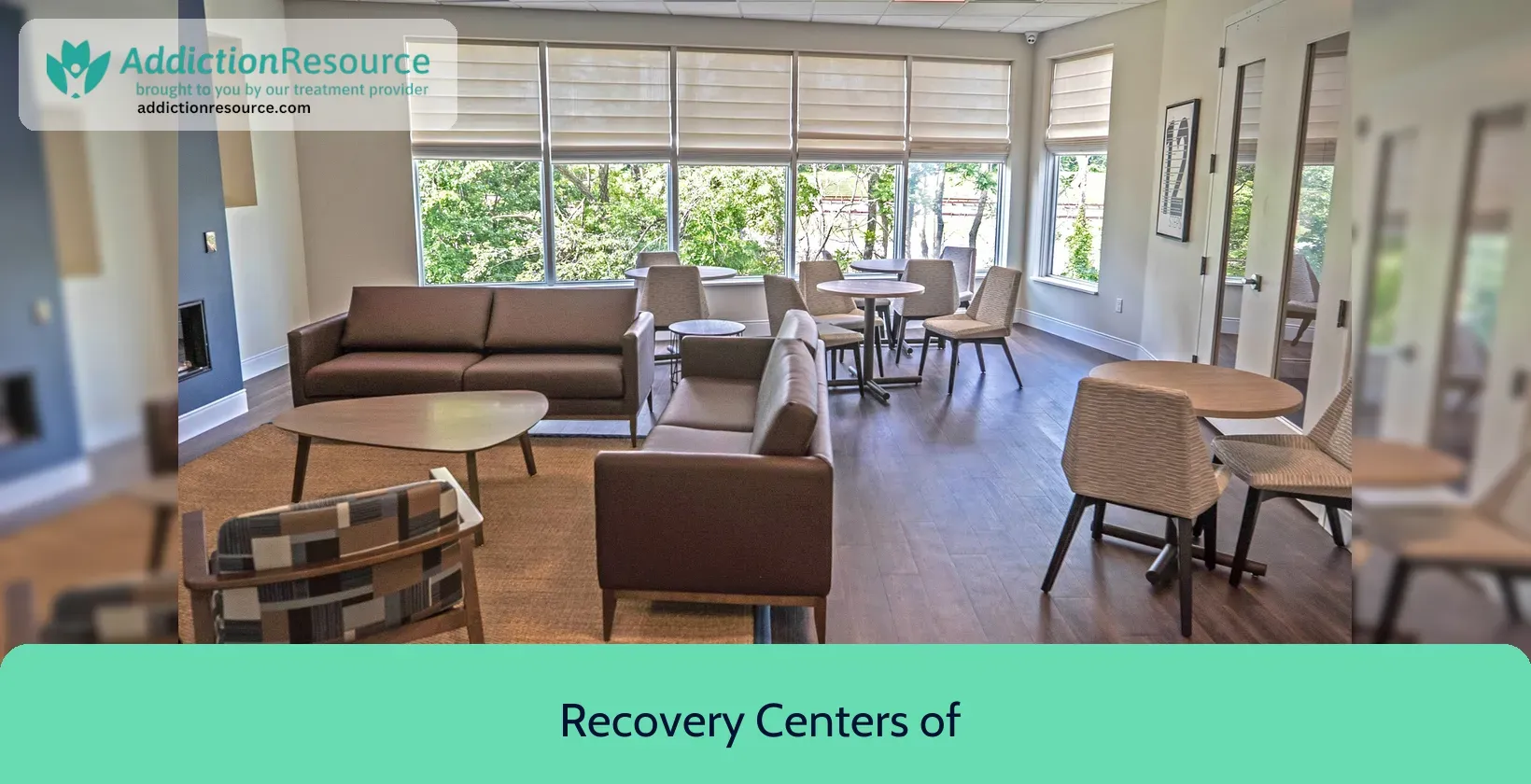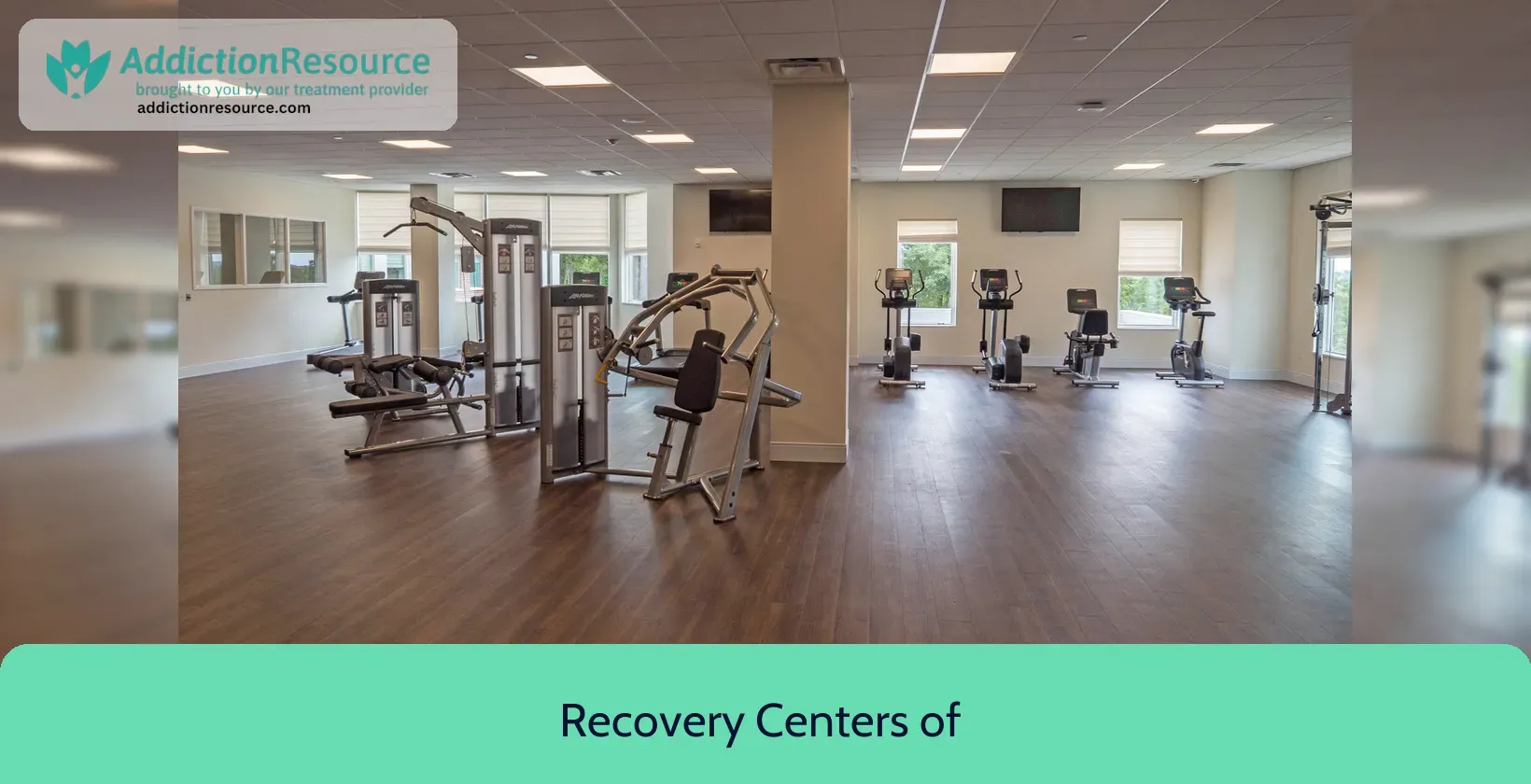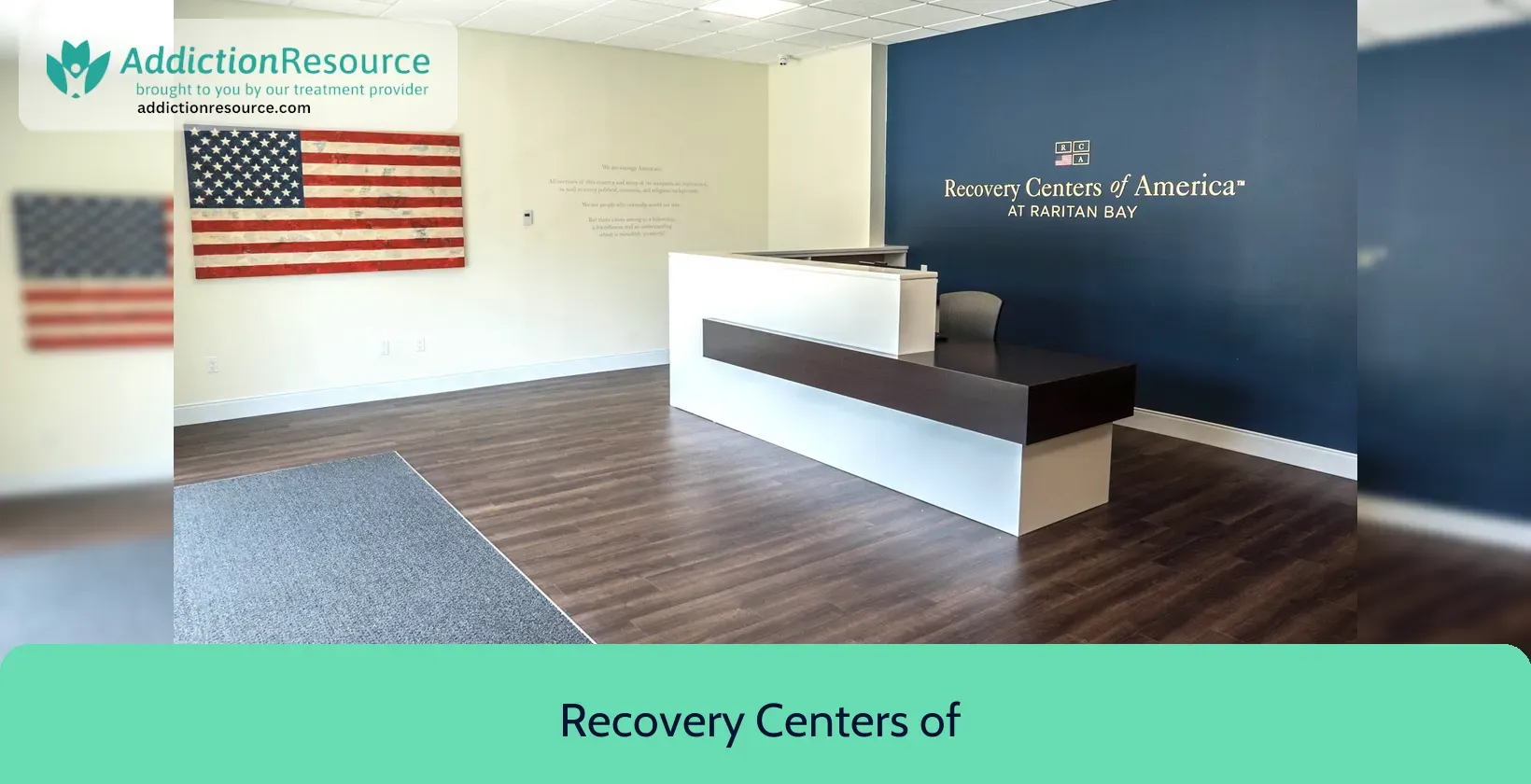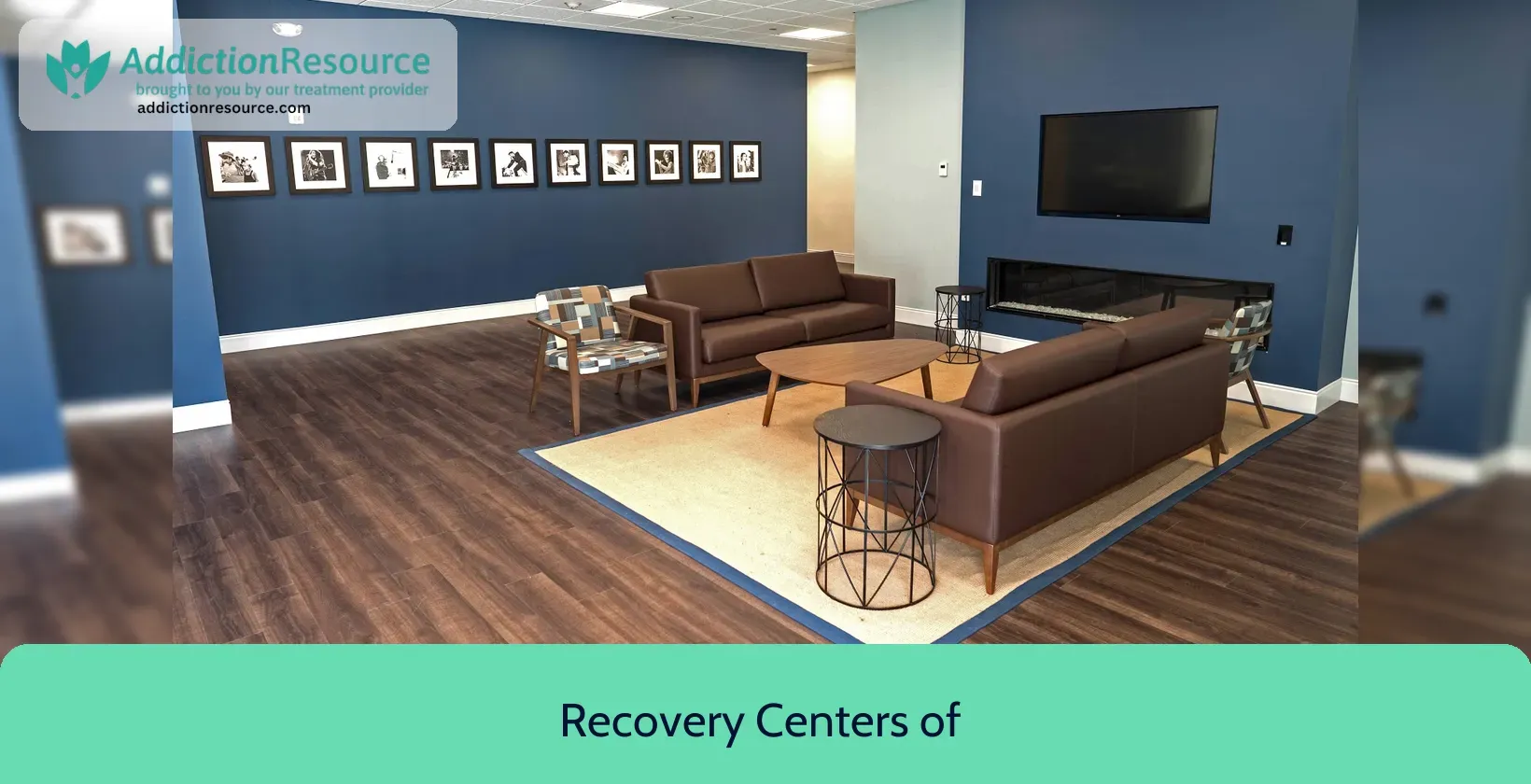Recovery Centers of America at Raritan Bay – South Amboy, New Jersey in South Amboy Overview
Recovery Centers of America (RCA) is a prominent brand in addiction recovery, known for its commitment to providing high-quality, individualized care. RCA offers two essential levels of care: residential and outpatient treatment.
In the residential program, clients live on campus, fully immersing themselves in the recovery process in a structured and supportive environment. This setting allows for intensive, round-the-clock care, ensuring that clients receive the comprehensive support they need.
For those who prefer to live at home while undergoing treatment, RCA offers outpatient programs. These programs are designed to provide flexible scheduling and allow clients to maintain their daily responsibilities while receiving the necessary support for their recovery.
Within both residential and outpatient categories, RCA ensures that each individual’s treatment plan is customized. This personalized approach means that clients receive the type and level of treatment that best suits their unique needs, enhancing the likelihood of a successful recovery. By tailoring treatment plans, RCA addresses the specific circumstances, challenges, and goals of each client, providing a holistic approach to addiction recovery.
Whether you’re in recovery for drug addiction or alcohol addiction, Recovery Centers of America (RCA) offers a wide array of effective treatment techniques. Clients benefit from both group counseling and individual therapy, ensuring a well-rounded approach to address their unique needs.
Group counseling provides an opportunity to share experiences and gain support from peers who are on similar recovery journeys. Individual therapy focuses on personalized care, allowing for deep exploration of personal issues and development of tailored strategies for overcoming addiction.
RCA’s curriculum is based on the principles of 12-step programs, providing a structured framework that has been proven effective in promoting long-term sobriety. In addition to these core elements, peer support plays a vital role in recovery, fostering a sense of community and shared understanding among clients.
Recognizing the importance of family in the recovery process, RCA also offers comprehensive family services. These services aim to heal relationships and make family members active participants in the recovery journey. By involving families, RCA helps to build a strong support system that enhances the chances of sustained recovery and overall well-being.
Clients consistently express their appreciation for the engaging and interactive sessions at Recovery Centers of America (RCA). Rather than merely sitting and listening to lectures, clients are actively involved in the process, making therapy sessions more dynamic and effective. The incorporation of various activities adds an element of genuine fun to the experience, helping clients feel comfortable and at home.
In addition to the individualized treatment plans, RCA offers specialized programs to cater to the unique needs of different client groups. The Discover Program is designed specifically for young adults, addressing the particular challenges and issues faced by this age group. Another notable program is RESCU, tailored for first responders and military personnel, both active and former. This program is adept at addressing the unique considerations and stresses that impact addiction within these professions.
By offering these specialized programs, RCA ensures that all clients receive the care and support they need, no matter their background or current circumstances. This comprehensive, engaging approach helps clients feel supported, understood, and truly at home during their recovery journey.
Recovery Centers of America (RCA) holds accreditation from The Joint Commission, underscoring its commitment to maintaining the highest standards of patient care and safety.
Hope Without Commitment
Find the best treatment options. Call our free and confidential helpline
Most private insurances accepted
Treatment Options
The facility offers multiple levels of care, such as:
The center treats the following addictions and co-occurring disorders:
- Comprehensive mental health assessment
- Comprehensive substance use assessment
Treatment Modalities
Cognitive Behavioral Therapy (CBT) is a evidence-based psychological treatment that focuses on identifying and challenging negative thought patterns and behaviors. It aims to develop coping strategies and promote healthier thinking to address a variety of mental health issues, such as depression, anxiety, and stress. CBT is typically short-term and goal-oriented, emphasizing the role of thought processes in influencing emotions and behaviors.
Family Counseling is a therapeutic approach that seeks to address and resolve conflicts, improve communication, and strengthen relationships within the family unit. By providing a safe space for family members to express their feelings and concerns, a trained counselor facilitates understanding and collaboration among members, promoting healthier dynamics and enhancing overall family well-being.
Group Counseling is a therapeutic approach where individuals come together under the guidance of a trained counselor to share experiences, provide mutual support, and gain insights. It fosters a sense of community, promotes understanding through diverse perspectives, and offers personal growth and problem-solving strategies.
Individual therapy is a one-on-one therapeutic interaction between a therapist and a client to address personal challenges, foster self-awareness, and promote mental, emotional, and behavioral growth. This setting provides a confidential and supportive environment for individuals to explore their thoughts, feelings, and behaviors, identify goals, and develop coping strategies. Individual therapy can be beneficial for a range of concerns, including anxiety, depression, stress management, relationship issues, and life transitions.
Conditions Treated
Mental health treatment
Mental health services are essential during treatment for drug and alcohol addiction, whether you receive treatment in an inpatient or outpatient setting. While receiving inpatient care, you can expect to have round-the-clock access to mental health therapists and medical staff. Additionally, you will likely receive a number of different therapies and mental health options like individual and group counseling, addiction and relapse prevention education, and coping skills training.
Substance use treatment
Substance use rehabilitation is a comprehensive treatment approach designed to assist individuals struggling with addiction to drugs or alcohol. This form of rehabilitation addresses both the physical dependency, often starting with detoxification, and the psychological triggers, using various therapeutic methods. The objective is to empower individuals to achieve and maintain sobriety, while equipping them with the tools and coping strategies needed to reintegrate into society and lead a substance-free life.
Co-occurring Disorders
Dual-diagnosis rehabilitation centers focus on treating individuals with simultaneous mental health and substance use disorders. The intertwined nature of addiction and mental health issues can intensify each other’s symptoms, complicating recovery. These centers provide a holistic treatment strategy addressing both conditions together, often encompassing thorough evaluations, a blend of therapeutic methods, family counseling, and post-treatment care.
Levels Of Care
Intensive outpatient treatment
Intensive outpatient programs (IOPs) support clients in maintaining long-term sobriety by providing tailored, high-quality care that adapts to their changing requirements. Clients participate in several treatment sessions each week, typically receiving between nine to 20 hours of outpatient care weekly. As clients achieve stability, the treatment frequency and intensity gradually diminish. Many intensive outpatient rehabilitation centers provide a diverse range of services, such as addiction counseling, training in life skills geared towards recovery, and the option for medication-assisted treatment (MAT). Additionally, evidence-based complementary therapies are frequently integrated into the program.
Outpatient
Outpatient treatment in a rehab center offers flexible therapy sessions, typically ranging from 1-3 hours per week, allowing individuals to continue daily activities while receiving care. In contrast, intensive outpatient programs demand a more rigorous commitment, often involving 9-15 hours weekly, providing a more immersive therapeutic environment without the need for inpatient stays.
Hospital inpatient treatment
Inpatient treatment includes an all-encompassing residential therapeutic regimen, during which patients reside on-site for a period usually spanning 30 to 90 days. Within this immersive setting, individuals receive structured assistance, prioritizing their safety and fostering a dedication to recovery. The treatment modalities offered may include individual and group counseling, cognitive-behavioral therapy, holistic interventions, family therapy sessions, as well as experiential therapies. The overarching objective is to comprehensively address the physical, emotional, and psychological dimensions of addiction or mental health disorders, establishing a resilient groundwork for long-term healing.
Hospital inpatient/24-hour hospital inpatient
During specific phases of the recovery journey, it becomes crucial to have around-the-clock support. 24-hour clinical care provides a secure setting for individuals to heal from drug or alcohol addiction, with the reassurance that medical detox and other treatments will be administered by skilled professionals.
Payment Options
- Cash or self-payment
- Private health insurance
- Self-pay options
License and Accreditation
- The Joint Commission
- LegitScript
- NAATP
- State department of health
Amenities
- Yoga studio
- Meditation room

 Authored by
Authored by  Reviewed by
Reviewed by 





